‘Take Care of Maya’ trial: Maya's dad testifies in $220 million case against All Children's Hospital

Maya Kowalski's dad testifies
Maya Kowalski's father, Jack Kowalski, described the pain his daughter was experiencing as she suffered with Complex Regional Pain Syndrome when he took the stand Monday afternoon in a $220 million case against Johns Hopkins All Children's Hospital featured in the Netflix documentary 'Take Care of Maya'
VENICE, Fla. - Jack Kowalski, the father of Maya, took the stand in the $220 million case against Johns Hopkins All Children's Hospital on Monday.
He detailed to the jury the pain that Maya, whose civil case against the hospital became a Netflix documentary called ‘Take Care of Maya,’ felt.
"If she took a shower, the droplets of water would make her scream," he said. "You put a sheet over her legs, and she would scream."
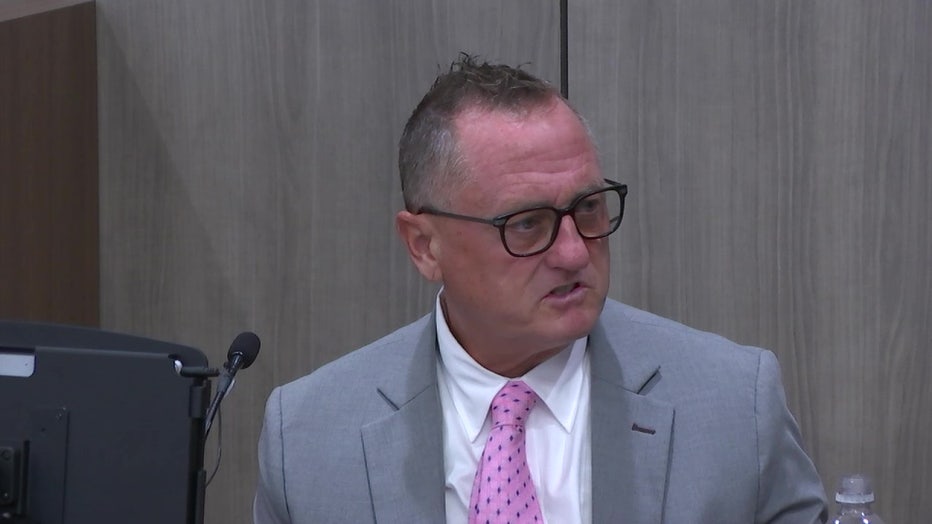
Maya's father, Jack, took the stand in her civil case against All Children's Hospital on Monday, Oct. 2.
Last week, jurors heard from several doctors and therapists who worked with Maya in 2015. At that time, a 9-year-old Maya had lost the ability to walk because of Complex Regional Pain Syndrome, or CRPS, and was being treated at Tampa General Hospital.
In 2015, after seeing doctor after doctor, Maya remained in pain and unable to walk. Jack said that her mother, Beata, was desperate to help her.
"Beata was looking for the answer," he said. "She knew there was nothing wrong with Maya's head."
Last week, testimony focused on Maya's condition and her treatment plan before she was admitted to All Children's Hospital.
On Monday, Maya's father told jurors that Beata, who was a nurse, heard about CRPS from an infusion patient she worked with.
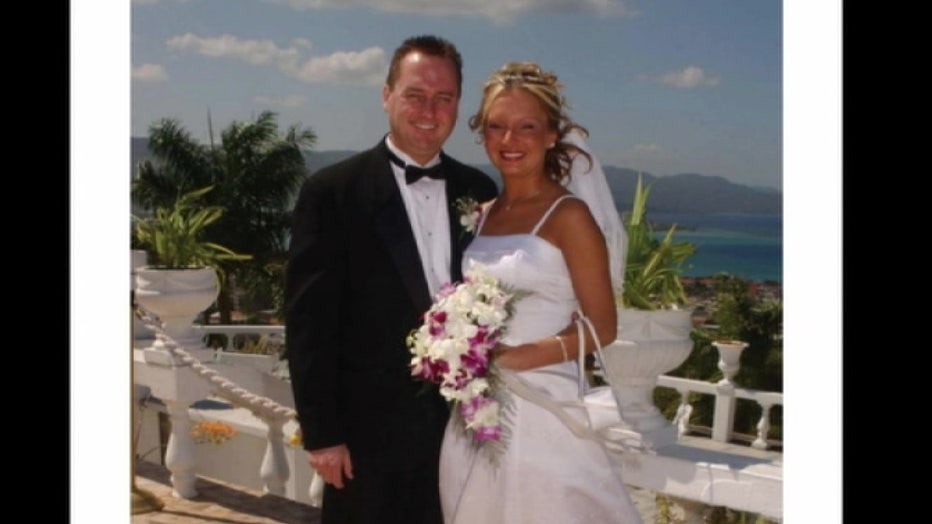
Jack and Beata Kowalski
"You know your child," he said. "Your child is not going to fake this and not play with my friends outside and just sit around and watch your body deteriorate; along with that, you don't put lesions on your body yourself."
Beata's research brought her to Dr. Anthony Kirkpatrick for an evaluation.
"He was asking questions, and it was like yeah; it was the first time we are hearing somebody ask us questions, and it seemed like he was onto something," Jack said.
Dr. Kirkpatrick prescribed Ketamine as a treatment.
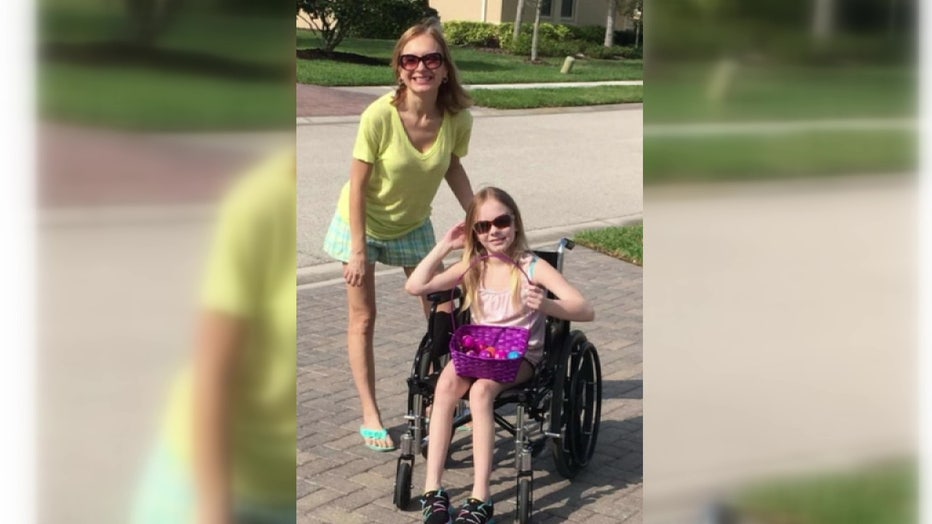
Pictured: Beata and Maya Kowalski
"He explained the procedure, he talked about it’s been around for quite a long time, he mentioned it’s used for many things, and it’s safe," Jack said. "There is the side effect when they’re coming out of it is a hallucination for a short time, but then everything is back to normal."
Maya’s father told the jury he and his family saw Maya slowly returning to herself.
RELATED: 'An unseen pain': Woman describes living with CRPS as 'Take Care of Maya' trial continues
However, staff at Johns Hopkins All Children’s Hospital disagreed with the Ketamine treatments. They also suspected Maya was the victim of child abuse and reported it to the state, which ordered her into state custody.
After being separated from her daughter for three months, Beata lost her life to suicide.
Jurors were read two notes that Maya’s mother left behind before she took her own life. She left one note for her family and another note for the judge overseeing the custody decision.
In the note, Beata Kowalski said the judge destroyed her family, and marriage and caused the family to go bankrupt because he kept her away from Maya.
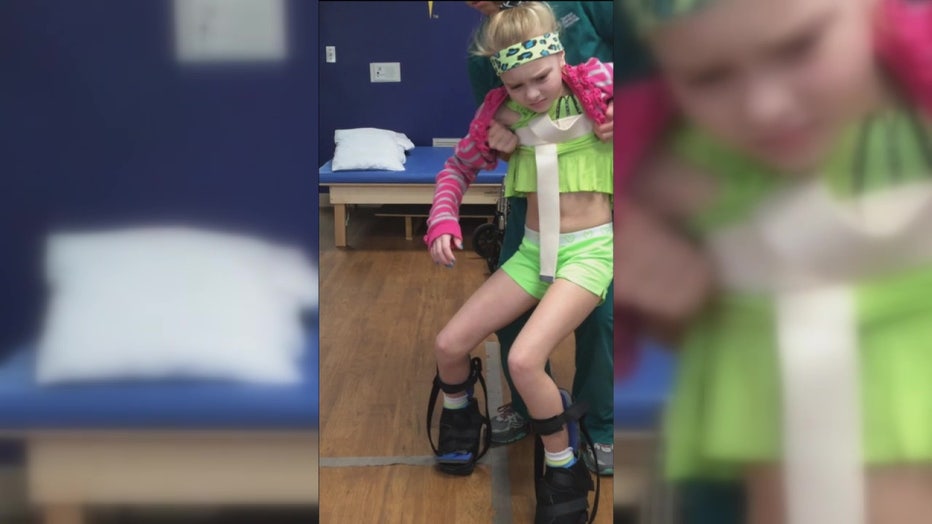
A video of Marissa Higgins helping Maya try to walk was shown in court on Friday.
Retired Sarasota County Sheriff's Office Detective Jarek Szalbirak detailed what he took away from the notes from Beata.
"This gives us really good clue as to what she was going through emotionally, the depression, being in pain, emotional pain, and no longer can take that pain," said Szalbirak.
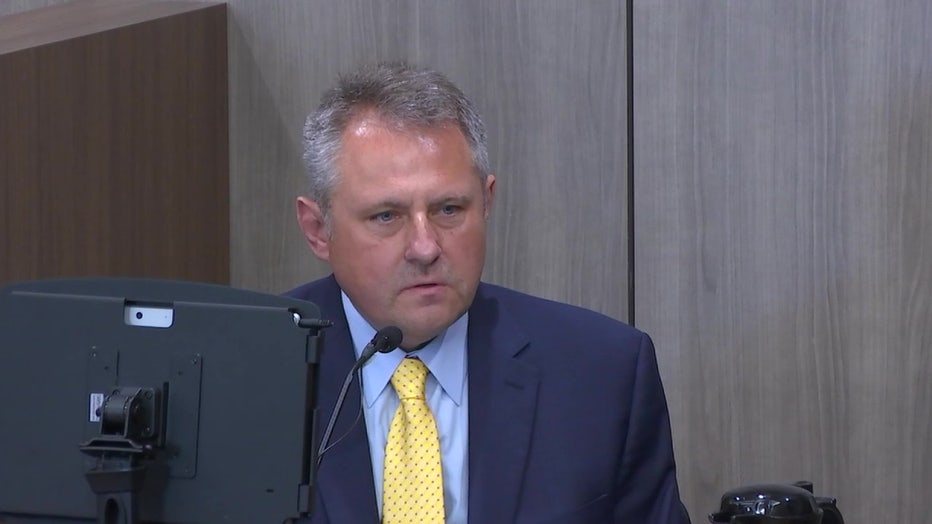
Retired Sarasota County Sheriff's Office Detective Jarek Szalbirak
Why was Maya in the hospital?
The Kowalskis say they took Maya to All Children's Hospital in October 2016 because she was having an intense pain flare up from CRPS.
CRPS is a rare pain disease that can follow an injury, and it’s tough to diagnose and sufferers are sometimes accused of faking their pain.
There’s no cure for CRPS and treatments can range from acupuncture and nutrition to physical therapy and massage or ketamine therapy.

Woman describes living with CRPS
As the trial between the family of Maya Kowalski and Johns Hopkins All Children?s Hospital continues, a woman who is also living with CPRS described what living with the illness is like
The Kowalski family attorney argues that the hospital staff refused to believe Maya had CRPS even after Maya’s doctor, who did not work for All Children’s Hospital, confirmed her diagnosis.
That same doctor had previously prescribed ketamine as a treatment, which can be used as a pain management tool, but it is also sometimes abused. In high enough doses ketamine can cause coma and even death.
RELATED: ‘Take Care of Maya’ trial: Doctor who's treated thousands for CRPS testifies on behalf of Maya
On Thursday, defense attorneys for Johns Hopkins All Children’s Hospital focused on Maya’s continued pain and questioned whether the ketamine was truly helping her.
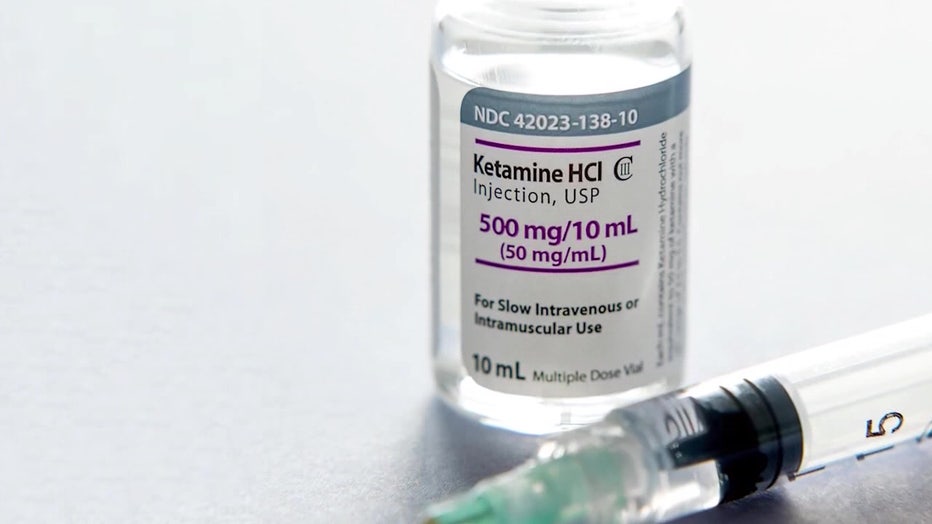
"Based on her condition the day before all children’s, Maya was going to be sick with crippling pain for a while?" asked a defense attorney.
"Correct. She will be sick with crippling pain her most of her life," stated Dr. Chopra.
"Right, including her hospitalization at All Children’s. Not because of what All Children’s did because that’s her condition," asked the attorney.
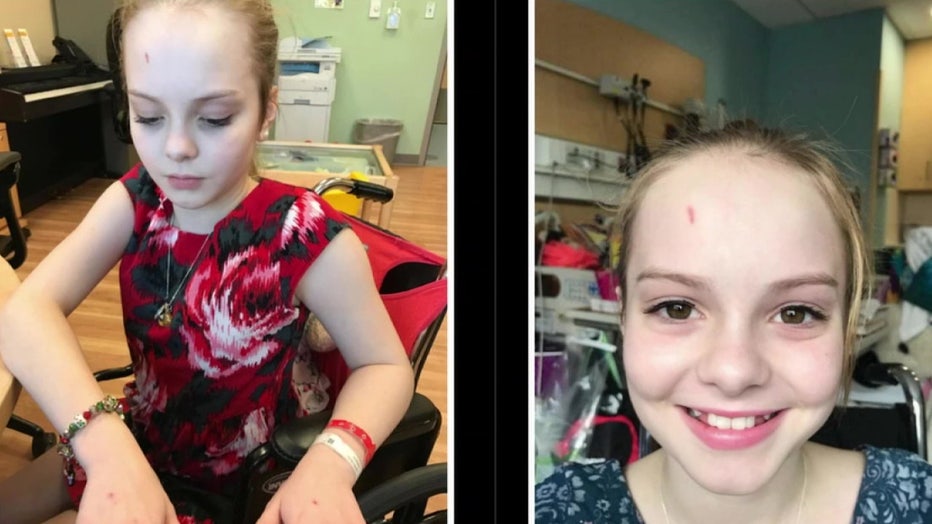
Side by side images of Maya Kowalski as she battled CRPS.
"Right. She did not respond to the ketamine given to her two days before that and then she had abdominal pain," said Dr. Chopra.
"Because the ketamine failed?" the attorney questioned on.
"That episode failed," said Dr. Chopra.
Why wasn't Maya allowed to see her family?
While at Johns Hopkins All Children's Hospital, Maya’s mother insisted the hospital give her daughter ketamine. Her persistence alarmed hospital staff and they called in a report to the Child Abuse Hotline.
They suspected Beata Kowalski, who was a registered nurse, was making her daughter sick.
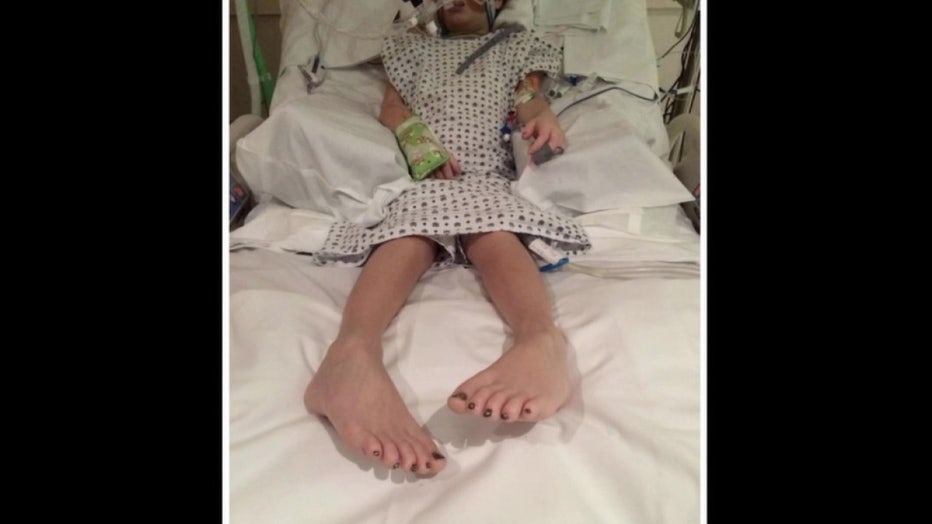
Maya Kowalski in a hospital bed.
When the hospital’s attorney began his opening statements, he noted that several hospital staffers believed Beata Kowalski suffered from Munchausen syndrome by proxy (MBP) and they were trying to protect Maya.
A judge ordered Maya to be sheltered at the hospital while the child abuse allegations were being investigated. She wasn’t allowed to be discharged to her family or another treatment facility and could not see her mother. A judge ordered her remain at the hospital under state custody.
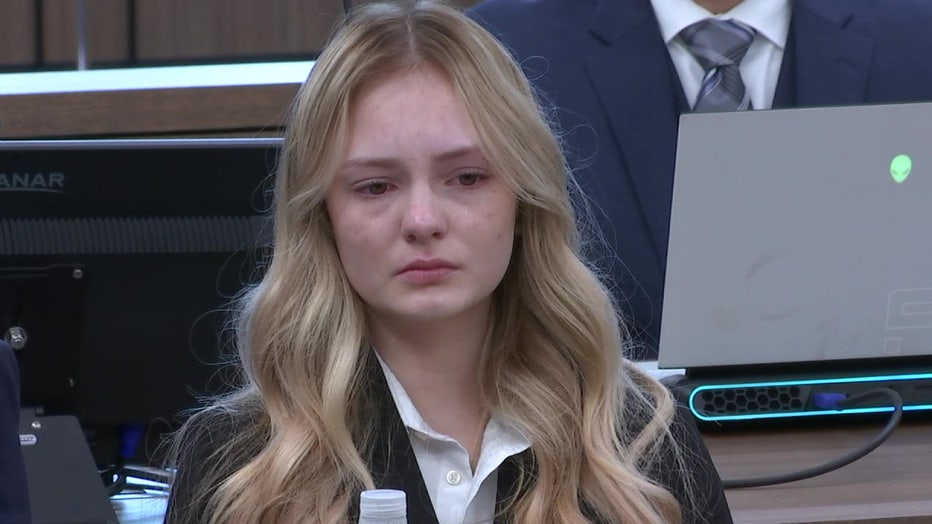
Maya Kowalski listens to opening statements in a $200 million case against All Children's Hospital.
Beata Kowalski died by suicide about three months after Maya was taken into state custody. She left a note saying she could no longer take the pain from being away from her daughter and being treated like a criminal. Maya was eventually allowed to return to her family following her mother's death.
Now, the surviving Kowalskis are suing Johns Hopkins All Children’s Hospital for $200 million, claiming the actions of ACH and DCF caused Beata Kowalski to take her own life.
"We had no reason to wish this family harm and we still don’t, the issue here is who is responsible for it. We will go over the facts and what the facts don’t show in terms of any connection of what was done by All Children’s and that tragic result," Hunter previously stated.
PREVIOUS: Family in Netflix’s ‘Take Care of Maya’ takes lawsuit against Johns Hopkins All Children’s to court
Hunter says staff at Johns Hopkins All Children’s Hospital followed state law by reporting a situation that raised red flags for the medical staff.
However, the Kowalski family claims that while hospital staff was accusing them of lying about CRPS and refusing to treat Maya, the facility was billing the family and their insurance more than half a million dollars for that exact cause of illness.
The hospital is expected to argue that Maya’s outside ketamine treatments were dangerous and inappropriate for a child.
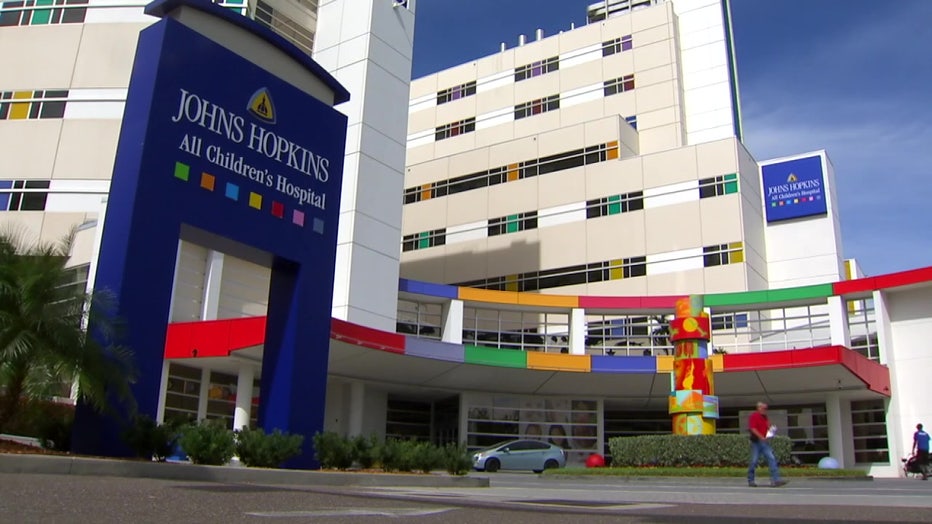
File: Johns Hopkins All Children's Hospital
Jurors will ultimately have to decide whether what happened to the Kowalski family could have been prevented and if the hospital’s actions pushed Beata Kowalski to take her own life.
"We ask in this case for you to consider not only compensatory damages to try to make them whole for these terrible things, but also punitive damages to deter them to punish them and to deter this type of behavior in the future," said Greg Anderson, Maya Kowalski’s lawyer.
The family already settled with the DCF Suncoast Center and child abuse pediatrician Dr. Sally Smith who once worked for the center, but is no longer employed by the organization.
Last week, the Kowalskis dropped a case against DCF social worker Catherine Bedy, who was a focus of the documentary.
The family’s attorney reportedly described the decision as a ‘walkaway agreement’, which means the family chose to drop the suit against Bedy while continuing to sue the hospital.
The trial is expected to last up to two months.

